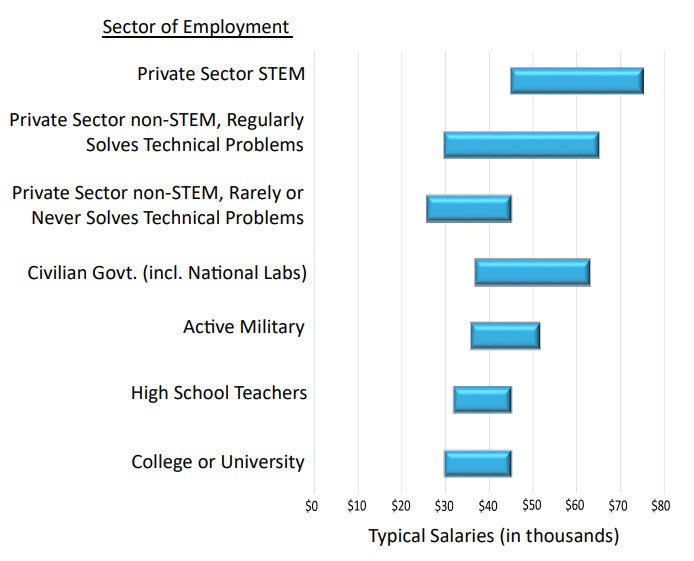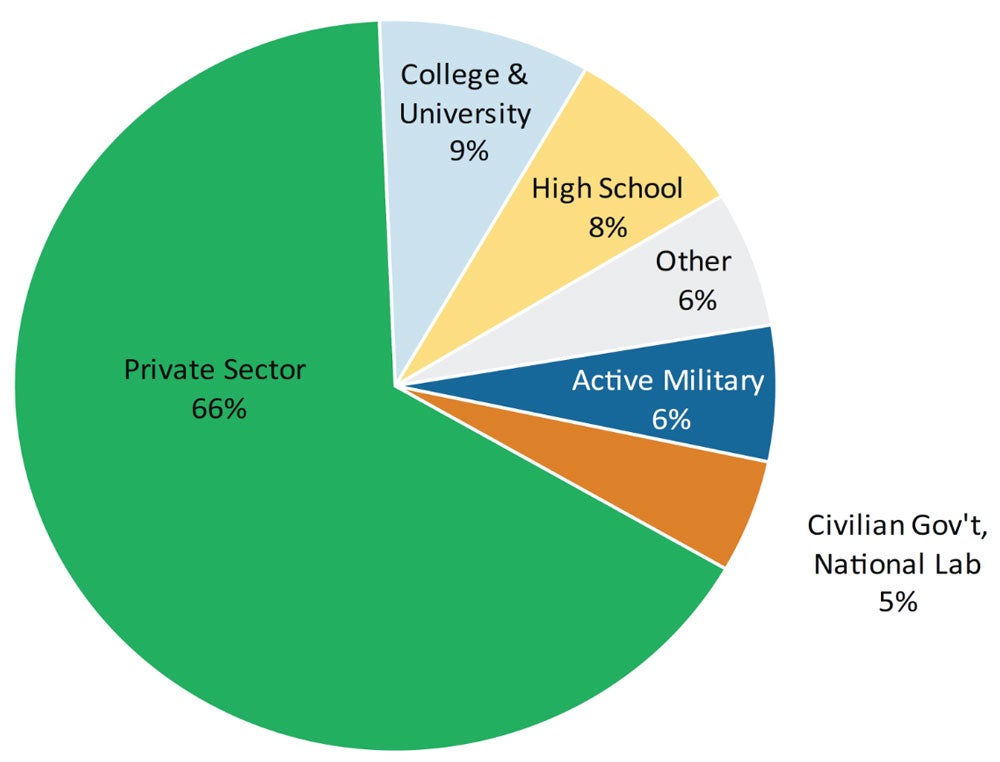Life After Graduation

Physics Bachelor’s Degree Graduates, 2017.
Physics majors are problem solvers. Their analytical skills make them versatile and adaptable so they can be successful in many different areas. Fifty-four students graduated from ECU in the last six years with a Bachelor’s degree in physics. Out of these students,
- 50% are known to have been accepted into graduate programs in a STEM field,
- 4% went to medical school,
- 13% went right to work in a STEM field, and
- 8% obtained other jobs.
(We do not know the status of the remaining 25% of the students.)
Approximately 50% of the students attending graduate school chose to pursue a Master’s or PhD degree in physics at ECU. Some of the other graduate schools that our physics graduates from the last six years have attended include:
- Duke University
- Georgia Institute of Technology
- North Carolina State University
- Old Dominion University
- University of Illinois
- University of Tartu
- University of Texas at Austin
- Virginia Commonwealth University School of Medicine
- Wake Forest University
- Washington University in St. Louis
Graduates with a Bachelor’s degree in physics can become software developers, data scientists, intellectual property analysists, and engineers, among other occupations. Various companies have hired our recent physics graduates including:
- Consolidated Electrical Distributors
- Gastroenterology East
- GKN Driveline
- RFPi
- Stanford White
- Thermo Fisher Scientific
What will YOU do after graduation?

Source: Careers Toolbox (www.spsnational.org/career-resources)
Find your Path

The SPS Careers Toolbox provides tools to help physics students discover their options and prepare for success. Use this site to identify job titles of interest, develop a job search strategy, prepare for an interview, and more!
Learn the Facts!
The American Institute of Physics (AIP) has a dedicated Statistical Research Center that provides data on education and employment in physics. Below is a sample of what you can find on the website.
Did you know that new physics bachelors entering the workforce receive some of the highest starting salaries of any undergraduate majors?
Physics Trends – Spring 2018
Typical Starting Salaries for Physics Bachelors
Source: American Institute of Physics

The private sector continues to employ the majority of physics bachelors who enter the workforce after receiving their degrees.
Figure includes only bachelors in full-time, newly accepted positions from the classes of 2015 and 2016 combined. Typical salaries are in the middle 50% i.e, between the 25th and 75th percentiles. STEM refers to positions in natural science, technology, engineering and math. Regularly solving technical problems refers to respondents who selected “Daily”, “Weekly”, or “Monthly” on a four-point scale that also included “Rarely or Never” when asked how frequently they solved technical problems in their positions.
Initial Employment* Sectors of New Physics Bachelors, Classes of 2015 & 2016 Combined

*47% of new physics bachelors were employed in the winter following the year in which they received their degree.